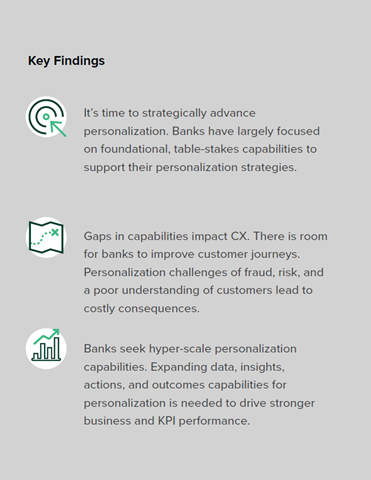Transforming compliance with pKYC

Henry Balani at Encompass Corporation describes the significance of the rise of perpetual KYC in financial institutions
Traditional banking and finance processes are experiencing significant digital transformation, following the introduction of the perpetual Know Your Customer (pKYC) approach.
Perpetual KYC has provided modern banks with the ability to continuously update and verify customer information in real-time, rather than relying on periodic reviews. This shift has been driven by an increase in technological advancements and a growing demand for more dynamic and responsive regulatory compliance mechanisms.
Traditional KYC processes involve periodic reviews of customer information at fixed intervals, typically every one, three, or five years. These reviews, while comprehensive, are static and can leave significant gaps where customer information may become outdated, potentially missing changes in customer risk profiles or new compliance requirements.
Perpetual KYC, on the other hand, is event-driven and dynamic. It continuously monitors customer activities and automatically updates profiles in response to specific triggers such as changes in personal information, significant transactions, or alterations in beneficial ownership. This approach is undoubtedly more proactive, allowing financial institutions to respond to risks and compliance needs in real-time.
pKYC for competitive advantage
By leveraging pKYC, banks and other regulated financial institutions can take advantage of a range of benefits that are crucial in the modern digital era to gain a competitive edge. Through continuous monitoring, pKYC enables financial institutions to identify and address potential risks promptly. This real-time approach helps mitigate risks associated with financial crimes and ensures compliance with the latest regulatory standards.
pKYC will lead to operational efficiency and cost reduction. By automating many of the manual processes involved in KYC, pKYC significantly reduces the time and resources needed for compliance, allowing financial institutions to focus their efforts on high-risk cases, rather than conducting blanket reviews for all customers, resulting in substantial cost savings.
This process also enables many banks to improve their customer service and management, but also enhance the customer’s experience. With pKYC, customers are not subjected to frequent, intrusive reviews if their profiles remain stable. This results in a smoother and more positive customer experience, potentially increasing overall customer satisfaction and loyalty.
Additionally, automated systems minimise human error and ensure consistency in applying KYC policies, enhancing overall regulatory compliance and reducing the risk of non-compliance penalties.
Implementation considerations
Implementing a pKYC operating model is not straightforward and requires the right blend of infrastructure and operating process. Every firm’s pKYC journey and ecosystem will be unique and cut across people, processes and technologies.
Data is central to the success of pKYC as reviews based on event changes (aka event driven triggers) will not be effective if client information is outdated, missing or incorrect. Without consistent access to relevant and accurate client information, pKYC is impossible. Corporate Digital Identity (CDI) is fast emerging as a foundation for ensuring valid customer information is collected for successful pKYC operations.
Being able to leverage this data requires an ecosystem of technology, which may be developed in house, utilizing third-party RegTech providers, or a combination of both. This technology should drive how data is stored, structured and accessed so that pKYC triggers can be comprehensively managed. Customer lifecycle management systems (CLMs) are particularly relevant to pKYC as they connect all components along the workflow processes.
Importantly, overarching executive sponsorship is needed to ensure a successful outcome in transformation initiatives. Recognizing the structural and cross departmental challenge, Influential sponsors will align the multiple stakeholders involved in driving this change and will champion a firm’s pKYC strategy and approach to regulators and other key stakeholders.
Ultimately, pKYC must be future-proof and scalable, ready to adapt in line with business strategy and regulation to keep firms competitive.
Industry adoption and future trends
The adoption of pKYC is growing, driven by regulatory pressures and the increasing complexity of financial crimes. Financial institutions are recognising the benefits of a proactive, real-time approach to compliance and risk management. The move towards pKYC is seen as a necessary evolution to stay ahead in a highly regulated and competitive financial environment.
Looking ahead, the integration of advanced technologies such as blockchain and further advancements in AI and ML will likely enhance the capabilities of pKYC systems. These technologies can provide even more robust and secure mechanisms for customer verification and monitoring, ensuring higher levels of compliance and risk mitigation.
Blockchain technology can be leveraged to improve the initial customer authentication and validation process. We can also anticipate improvement in the quality of customer data collected as part of the initial customer onboarding processes, leveraging AI-enhanced tools that will intelligently identify and collect the required attributes during the document processing stages, ensuring that pKYC will use relevant, accurate and up-to-date data.
There is no doubt that perpetual KYC represents a significant shift from traditional, periodic KYC processes, offering numerous benefits in terms of real-time risk management, operational efficiency, and customer experience.
While the implementation of pKYC poses certain challenges, the advantages and offers make it an increasingly attractive solution for financial institutions aiming to enhance their compliance and risk management frameworks, and remain competitive, in a rapidly evolving regulatory landscape.
Henry Balani is Global Head of Industry & Regulatory Affairs at Encompass Corporation
Main image courtesy of iStockPhoto.com and Andrii Yalanskyi

Business Reporter Team
Related Articles
Most Viewed
23-29 Hendon Lane, London, N3 1RT
23-29 Hendon Lane, London, N3 1RT
020 8349 4363
© 2024, Lyonsdown Limited. Business Reporter® is a registered trademark of Lyonsdown Ltd. VAT registration number: 830519543





